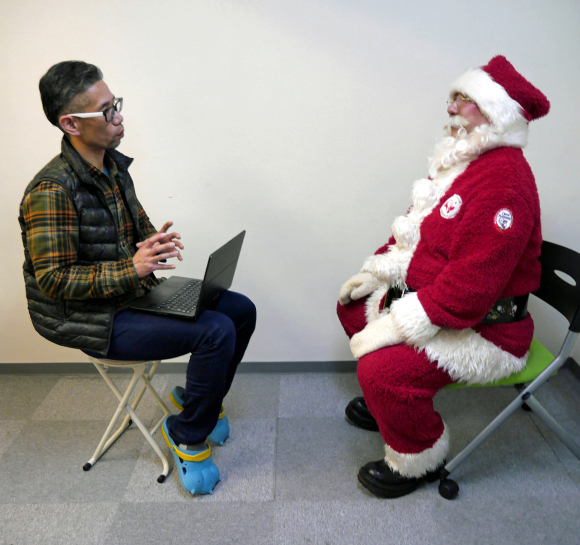
Feats of strength and porn-loving compatriots are all part of why it ain’t easy being Japanese Santa.
Paradise Yamamoto is an official Santa Claus recognized by the Greenland International Santa Claus Association since 1998. But our seasoned interviewer Mr. Sato is hip to his game. Since the tender age of 28 he has heard rumors from reliable sources that there is, in fact, no such thing as Santa.
Finally, he now has the chance to ask the hard questions and expose Santa Claus for the charlatan that he really is. On the day of the interview, Mr. Sato gathered his satellite images of the North Pole along with notarized statements from several aeronautics specialists attesting to the physical impossibility of Santa’s feats, and awaited his interviewee.
Mr. Sato had him right where he wanted. As is the custom in Japan, upon greeting, so-called “Santa” would have to exchange business cards with our savvy reporter, thus exposing his true identity. Jolly old St. Nick’s belly shook like a bowl full of jelly as he reached into his pocket and pulled out his card.
However, Mr. Sato was shocked to see that the name card read “Santa Claus.” Clearly this was the real deal.
▼ “Santa Claus”
Mr Sato: Please forgive me for doubting you earlier. I heard some things… and…. Look, you can’t be too careful these days. So tell me, you became Santa 20 years ago, correct?
Santa: That year the official Santa test took place in Denmark. On the day of my departure, I had to make the entire journey from my home and ride the plane as Santa. When I got to Narita I was the only one dressed as Santa, and it was the middle of July. Needless to say I was also the only Santa arriving in Denmark that day. But when I got there, there was a big welcoming. Because I was the first Asian Santa to take the exam, the local media was all over it.

What? They wouldn’t let you change after you got there? That’s kind of alienating. If it were me I think I’d be too embarrassed. So what did you do in the exam?
Well, during the discussions to take the exam there were certain conditions that needed to be met first.
Really? I figured anyone could at least try.
First you had to be married and have kids. Those two were musts. After that you had to weigh over 120 kilograms (265 pounds).
Yeah, if you don’t have the proportions then you’d look like a shabby Santa. You never see skinny Santas in other countries.
In addition, you have to be an active Santa. They also wanted to know my other occupations. These days they don’t ask that, but at the time I was involved in various things. They seemed especially interested in cultural work. I was a musician and worked in car design previously, so I think they liked that. My hobby was also bonsai trees.
Wow, I guess a lot of people get cut very early on with those conditions. Tell me about the actual exam.
First they measure your physical strength. You have to do a 50 meter (feet) dash with a sack full of presents. Then you have to climb a ladder and into a chimney. After that you put the presents under the tree and go back the way you came.
▼ Official Santa Claus Annual Physical Strength Test:
Japanese Santa (left), Canadian Santa (right)

It’s got to be hard running in a Santa suit when you weight 120 kilos!
There was another important thing. Gingerbread cookies and milk are prepared in the room. I have to eat it as fast as possible and neatly. I can’t make a mess. I eat as much as I can in two minutes and then head back. The eating was pretty difficult. First of all, gingerbread cookies are not a taste that Japanese people are accustomed to.
It sounds grueling to have to daintily eat cookies while you’re probably winded and sore.
They still do it.
Is that so?
Then there is an interview by an Elder Santa and a Senior Santa followed by the reading of the oath.
I guess they don’t ask you in Japanese do they? Are language skills also crucial?
No. The universal language of Santa is “ho ho ho,” so that’s the oath: “Ho ho ho.” The point was whether I would continuously talk like Santa.
Did you have any hardships during the exam?
I managed to pass the exam and become an official Santa Claus, but the Swedish Santa opposed it. It seemed there were many Japanese people in the town that he lived in his younger days. He had a bad experience with them then which gave him a poor impression of Japan. At the time I couldn’t understand why he was against it.
Did you two have a falling out?
No. That wasn’t the case. Afterward he invited me to his house where he told me the story of where he was born and raised and showed me some pictures. He also told me about Japanese tour groups he experienced with bad manners. It seems that a long time ago Japanese people had an image of Sweden as some kind of “free sex” country. There would be Japanese tour groups organized to go sightseeing around pornographic theaters. However, “free sex” actually had a meaning of gender equality. I guess he just wanted to tell me. After hearing his story I felt closer to him, almost like family.
And after that he accepted you as an official Santa Claus?
I think he wanted to confront this problem. After that, he recognized me as a real Santa.
What does being Santa entail?
From around September I begin visiting places with children who cannot spend Christmas Eve at home. I visit a lot of welfare facilities and hospitals. We may also go to facilities with disabled people and other child care facilities. I also take part in Christmas tree lighting ceremonies and other places to take photos with people.
What do you enjoy most about the job?
For me, I think working with children is very meaningful, because Santa Claus is very special for children, especially in Japan. In western countries Christmas is celebrated with family and it is a natural part of the culture. Even when kids grow up and don’t believe in the existence of Santa, they continue to believe in the spirit of Santa, and as they become adults they always maintain that spirit of giving.
However, in the case of Japan, Christmas and Santa have shallow roots. Kids who get lots of presents will, at a certain age, turn to their parents and say, “There is no such thing as Santa Claus,” and that’s it. That’s sad.
Sometimes an elementary school teacher will say to their class: “There is no Santa!”
But when I go to these facilities, sometimes children tell me things deep in their hearts that they cannot say to the staff. Things like “I’m always smiling but inside I feel lonely,” or “I’m not very good at talking, but I want to make more friends.” These things make you realize that Santa is a very special thing for children.
They can tell you secrets that they can’t tell ordinary people.
I’m easy to consult. I guess they know I’m good at keeping secrets.
It can be hard burden though. Do you share war stories with the other Santas?
I don’t bother other Santas with my problems, but there is community of internationally recognized Santas. We also have a private Facebook page.
What kind of things do official Santas talk about? I can’t even imagine what it’d be like when you gather.
Every year official Santas gather for the World Santa Claus Congress, but I’m mostly just asked about Japanese Christmas. I used to tell them, “In Japan a lot of people eat fried chicken,” and it would blow their minds. Or I’d tell them, “We light candles on a whipped cream cake and eat it,” and they’d all say, “Seriously?!”
▼ The World Santa Claus Congress takes place near Copenhagen, Denmark

I guess even Santas can get culture shock.
Since Japan is an island country, I realized it is hard to get authentic Christmas customs to take root, even after 20 years. You can see it in the businesses that offer “letter from Santa services.” The global standard is for parents to just write a letter and put it on a bedside table with some milk and cookies. Those services are not connected to us at all because not a single official Santa takes part in letter writing for profit.

Thank you for talking with me for so long. Clearly the Santa exam and Santa work is difficult and serious business. We shouldn’t go around thinking we can just become Santa. It is not something that should be taken lightly.
No. That’s not right. Everyone in Japan should think they can be Santa anytime.
Say what?
In Japan, people throw around the word “hospitality” very freely to the point that is doesn’t mean much any more. However, if you truly believe in this concept then I think you have a spirit of giving. Even if it is unseen, if you always make an effort to be a Santa to someone, then that’s good enough. If you’ve done enough that you can say to yourself, “I really am Santa,” then you’ll find your life richer for it. It doesn’t require grand gestures, just whatever you can do for those around you. You don’t even need a Santa suit. I really hope younger people start thinking this way early so they can accumulate a lot of Santa spirit in their lives.
Again, we’d like to thank Japan’s official Santa Paradise Yamamoto for allowing us this interview. As Santa himself told us, Christmas in Japan is done a little differently than elsewhere. But it doesn’t really matter how you celebrate this holiday, or whether you celebrate it at all. Santa’s message is universal: spreading a little generosity any way you can will only make everyone’s life that much better in the end.
Special thanks to: Monster Strike, Become Santa Lotto
Photos: SoraNews24 (Unless otherwise noted)
[ Read in Japanese ]

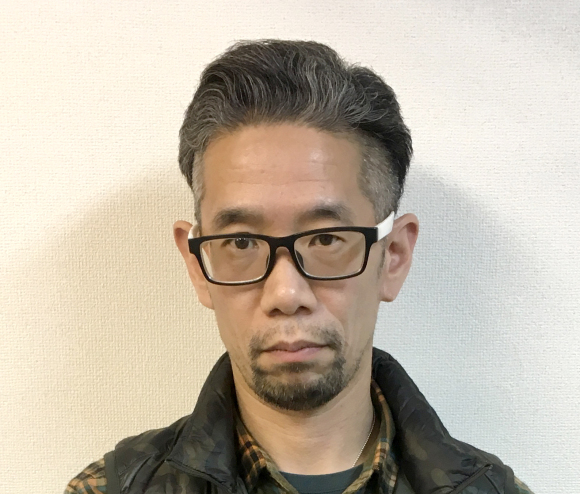
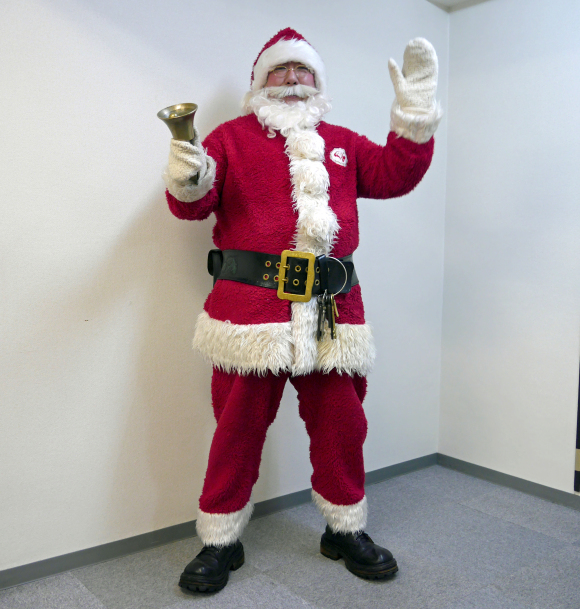
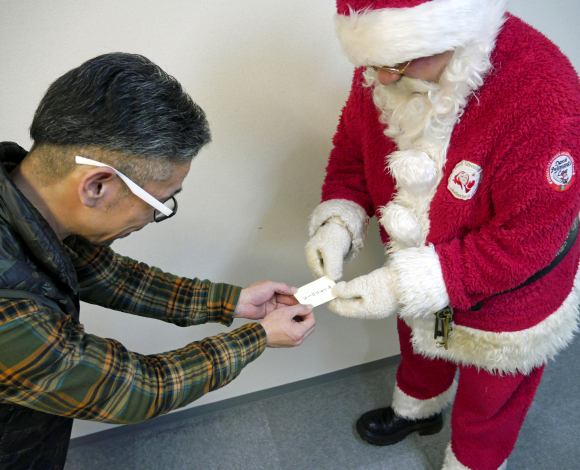
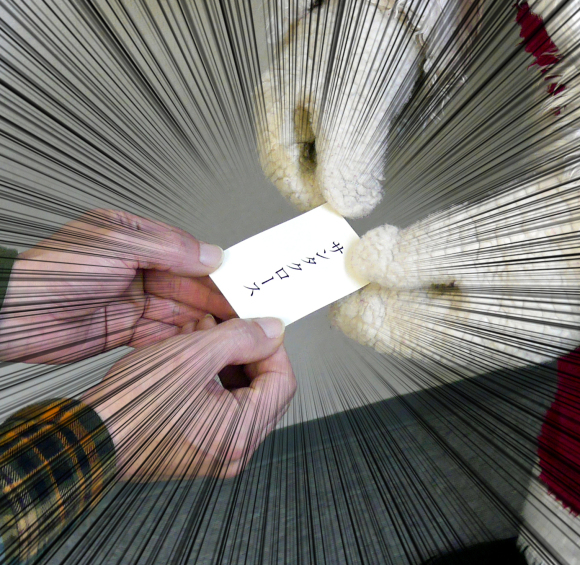
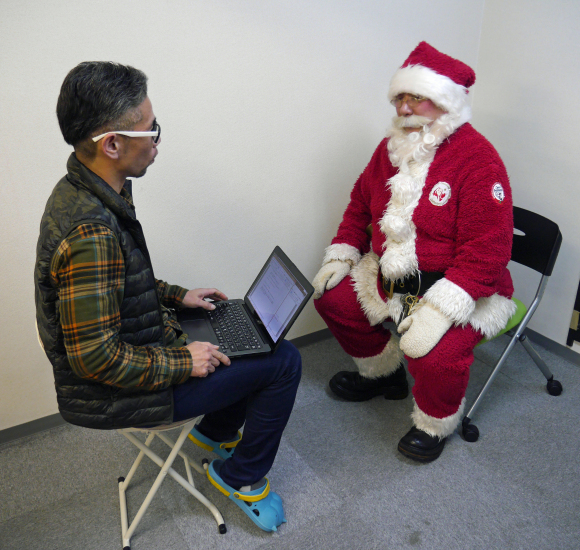
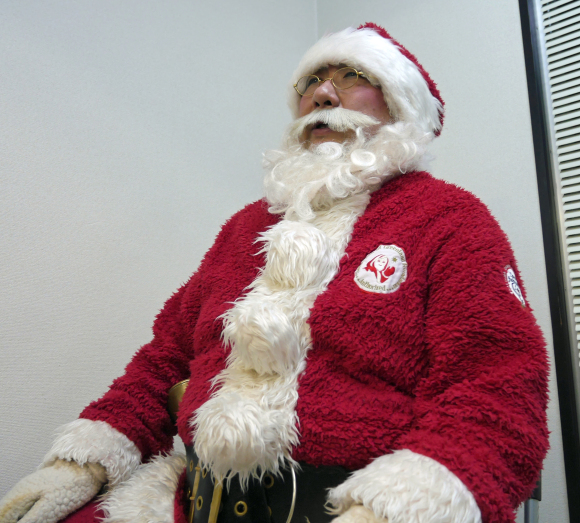
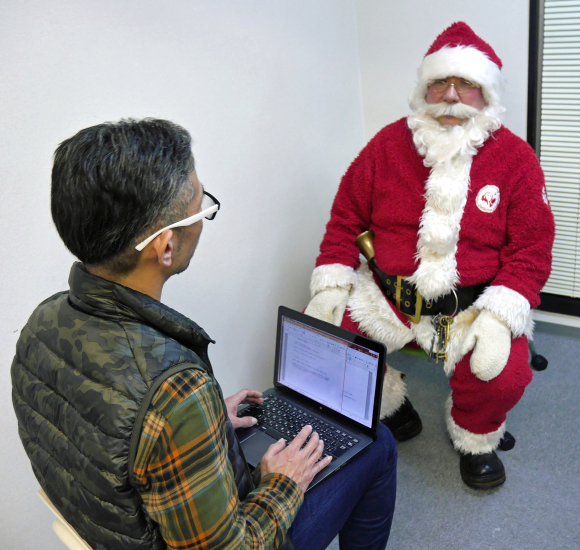
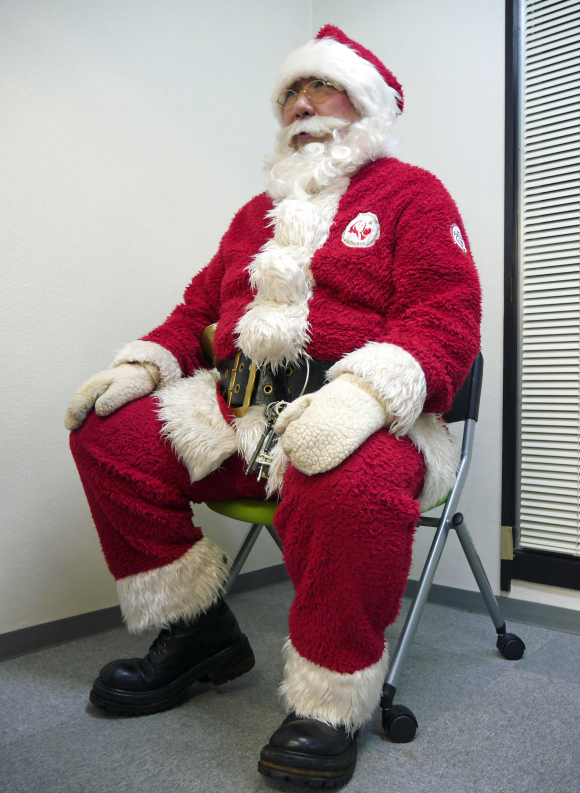
 Heartwarming response to Twitter question confirms that yes, Tikuwa_0913, there is a Santa Claus
Heartwarming response to Twitter question confirms that yes, Tikuwa_0913, there is a Santa Claus Japan destroys Santa Claus with science: “If he were real, we’d all be dead from his sonic boom.”
Japan destroys Santa Claus with science: “If he were real, we’d all be dead from his sonic boom.” Legendary violinist upstaged by eight-year-old son’s ridiculously cute gift to Santa
Legendary violinist upstaged by eight-year-old son’s ridiculously cute gift to Santa Japanese company invents “Spring Santa” – We love the concept, but it’s actually a little creepy…
Japanese company invents “Spring Santa” – We love the concept, but it’s actually a little creepy… Japanese kids set hilarious and ingenious traps to capture Santa Claus【Pics, Videos】
Japanese kids set hilarious and ingenious traps to capture Santa Claus【Pics, Videos】 Red light district sushi restaurant in Tokyo shows us just how wrong we were about it
Red light district sushi restaurant in Tokyo shows us just how wrong we were about it McDonald’s new Happy Meals offer up cute and practical Sanrio lifestyle goods
McDonald’s new Happy Meals offer up cute and practical Sanrio lifestyle goods Japan’s massive matcha parfait weighs 6 kilos, contains hidden surprises for anyone who eats it
Japan’s massive matcha parfait weighs 6 kilos, contains hidden surprises for anyone who eats it Anime girl English teacher Ellen-sensei becomes VTuber/VVTUber and NFT
Anime girl English teacher Ellen-sensei becomes VTuber/VVTUber and NFT Sandwiches fit for a sumo served up in Osaka【Taste Test】
Sandwiches fit for a sumo served up in Osaka【Taste Test】 Historical figures get manga makeovers from artists of Spy x Family, My Hero Academia and more
Historical figures get manga makeovers from artists of Spy x Family, My Hero Academia and more Studio Ghibli releases new action figures featuring Nausicaä of the Valley of the Wind characters
Studio Ghibli releases new action figures featuring Nausicaä of the Valley of the Wind characters All-you-can-drink Starbucks and amazing views part of Tokyo’s new 170 meter-high sky lounge
All-you-can-drink Starbucks and amazing views part of Tokyo’s new 170 meter-high sky lounge Kyoto’s 100 Demons yokai monster parade returns!
Kyoto’s 100 Demons yokai monster parade returns! Japanese ramen restaurants under pressure from new yen banknotes
Japanese ramen restaurants under pressure from new yen banknotes French Fries Bread in Tokyo’s Shibuya becomes a hit on social media
French Fries Bread in Tokyo’s Shibuya becomes a hit on social media New private rooms on Tokaido Shinkansen change the way we travel from Tokyo to Kyoto
New private rooms on Tokaido Shinkansen change the way we travel from Tokyo to Kyoto Studio Ghibli glasses cases let anime characters keep an eye on your spectacles
Studio Ghibli glasses cases let anime characters keep an eye on your spectacles Tokyo Tsukiji fish market site to be redeveloped with 50,000-seat stadium, hotel, shopping center
Tokyo Tsukiji fish market site to be redeveloped with 50,000-seat stadium, hotel, shopping center Beautiful Ghibli sealing wax kits let you create accessories and elegant letter decorations【Pics】
Beautiful Ghibli sealing wax kits let you create accessories and elegant letter decorations【Pics】 Studio Ghibli releases Kiki’s Delivery Service chocolate cake pouches in Japan
Studio Ghibli releases Kiki’s Delivery Service chocolate cake pouches in Japan New definition of “Japanese whiskey” goes into effect to prevent fakes from fooling overseas buyers
New definition of “Japanese whiskey” goes into effect to prevent fakes from fooling overseas buyers Our Japanese reporter visits Costco in the U.S., finds super American and very Japanese things
Our Japanese reporter visits Costco in the U.S., finds super American and very Japanese things Studio Ghibli unveils Mother’s Day gift set that captures the love in My Neighbour Totoro
Studio Ghibli unveils Mother’s Day gift set that captures the love in My Neighbour Totoro New Japanese KitKat flavour stars Sanrio characters, including Hello Kitty
New Japanese KitKat flavour stars Sanrio characters, including Hello Kitty More foreign tourists than ever before in history visited Japan last month
More foreign tourists than ever before in history visited Japan last month New Pokémon cakes let you eat your way through Pikachu and all the Eevee evolutions
New Pokémon cakes let you eat your way through Pikachu and all the Eevee evolutions Sales of Japan’s most convenient train ticket/shopping payment cards suspended indefinitely
Sales of Japan’s most convenient train ticket/shopping payment cards suspended indefinitely Sold-out Studio Ghibli desktop humidifiers are back so Totoro can help you through the dry season
Sold-out Studio Ghibli desktop humidifiers are back so Totoro can help you through the dry season Japanese government to make first change to romanization spelling rules since the 1950s
Japanese government to make first change to romanization spelling rules since the 1950s Ghibli founders Toshio Suzuki and Hayao Miyazaki contribute to Japanese whisky Totoro label design
Ghibli founders Toshio Suzuki and Hayao Miyazaki contribute to Japanese whisky Totoro label design Doraemon found buried at sea as scene from 1993 anime becomes real life【Photos】
Doraemon found buried at sea as scene from 1993 anime becomes real life【Photos】 Tokyo’s most famous Starbucks is closed
Tokyo’s most famous Starbucks is closed One Piece characters’ nationalities revealed, but fans have mixed opinions
One Piece characters’ nationalities revealed, but fans have mixed opinions We asked a Uniqlo employee what four things we should buy and their suggestions didn’t disappoint
We asked a Uniqlo employee what four things we should buy and their suggestions didn’t disappoint Princesses, fruits, and blacksmiths: Study reveals the 30 most unusual family names in Japan
Princesses, fruits, and blacksmiths: Study reveals the 30 most unusual family names in Japan Japanese man crowned World’s Best Santa at 2014 Santa Winter Games
Japanese man crowned World’s Best Santa at 2014 Santa Winter Games All aboard the “Merry Christmask” train in Mie Prefecture
All aboard the “Merry Christmask” train in Mie Prefecture US actor Misha Collins meets “Santa” in Japan, tweets about it in Japanese
US actor Misha Collins meets “Santa” in Japan, tweets about it in Japanese Which convenience store sells the best Japanese Christmas cakes?
Which convenience store sells the best Japanese Christmas cakes? Do your kids believe in Santa? Japanese electronics shop wants to know for a very special reason
Do your kids believe in Santa? Japanese electronics shop wants to know for a very special reason We try the new Starbucks Santa Boots Chocolate Frappuccino in Japan【Taste test】
We try the new Starbucks Santa Boots Chocolate Frappuccino in Japan【Taste test】 Pokémon Gold and Silver Pocket Monsters finally added to Pokémon GO!
Pokémon Gold and Silver Pocket Monsters finally added to Pokémon GO! Reconnect with the true meaning of Christmas at a Japanese zombie dance party
Reconnect with the true meaning of Christmas at a Japanese zombie dance party Giant golden statue of Chairman Mao Zedong erected in the middle of nowhere in China
Giant golden statue of Chairman Mao Zedong erected in the middle of nowhere in China Starbucks Japan releases new limited-edition mugs, cards and travel bottles for Christmas 2019
Starbucks Japan releases new limited-edition mugs, cards and travel bottles for Christmas 2019 Eat a red-nosed reindeer and Santa Penguin this Christmas at Baskin Robbins Japan
Eat a red-nosed reindeer and Santa Penguin this Christmas at Baskin Robbins Japan Let’s get into the holiday spirit with some low rated Christmas decorations from Amazon Japan
Let’s get into the holiday spirit with some low rated Christmas decorations from Amazon Japan Aquarium provides fishy fun, horrifyingly awkward marriage proposals
Aquarium provides fishy fun, horrifyingly awkward marriage proposals Let’s learn how to sing “Jingle Bells” in Japanese with the help of Santa Pikachu!【Video】
Let’s learn how to sing “Jingle Bells” in Japanese with the help of Santa Pikachu!【Video】 Santa sushi spotted in Japan, is here to deliver sackloads of deliciousness
Santa sushi spotted in Japan, is here to deliver sackloads of deliciousness
Leave a Reply